Taking nifty photos takes skill. Writing about taking nifty photos also takes skill, but of a different kind. If you aim to write about photography or just want to improve your writing skills, I have some suggestions for you. In celebration of National Grammar Day, here are my five favourite books on writing. Whether your subject is photography or cryptography, these will help you smoothly handle your syntax and dodge those dangling participles.
We are all writers, even if our output is confined to email or text messages. Could we be better writers, improving the clarity and pithiness of our prose? I decided that I could and should. So, over recent months I have consumed over a dozen books on writing well. Today, National Grammar Day, seemed like the perfect opportunity to share a list of my five favourites.
They are not geared specifically to writing about photography, and only one is geared specifically to writing non-fiction. But they helped me grasp the underlying structure of written communication. They also showed me the power of lucid prose and, I believe, improved the clarity of my own writing. I heartily recommend them.
My favourite books on writing – number 1: Dreyer’s English, An Utterly Correct Guide to Clarity and Style, by Benjamin Dreyer, Penguin Random House.
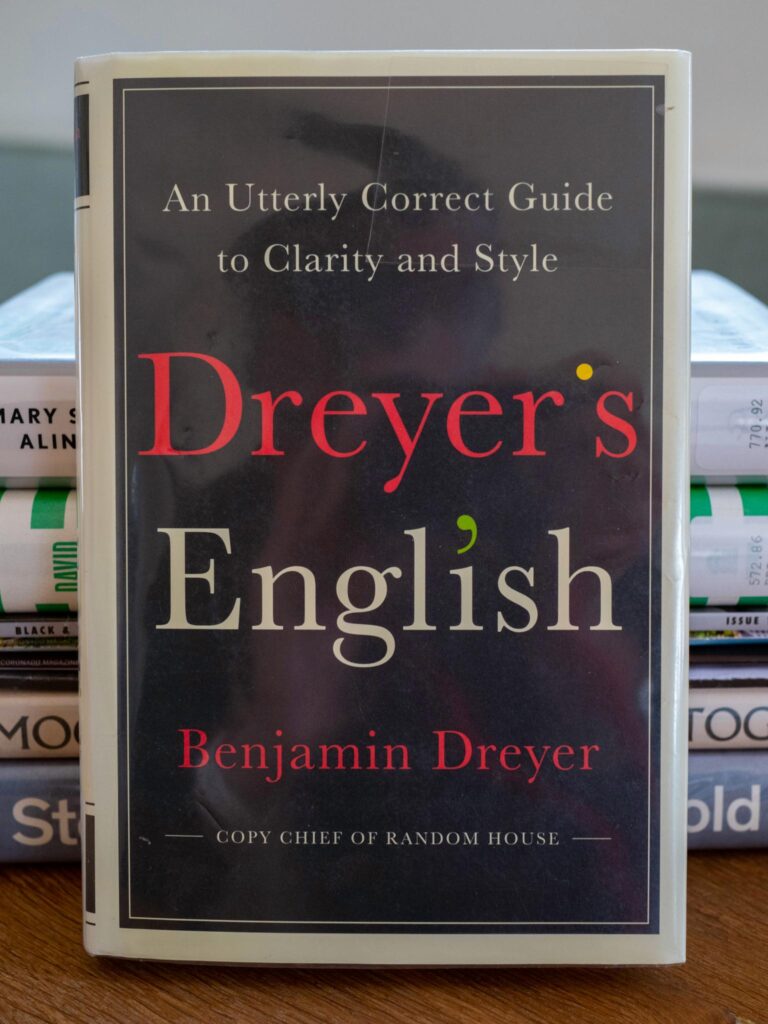
Dreyer is the chief copy editor for Random House. His book was both a New York Times Bestseller and named as one of the books of the year by The Oprah magazine. It is an extremely approachable exposition on grammar, syntax, and spelling. He writes with humour and conveys an unconcealed love of the English language.
The version I read was aimed at readers speaking American English but takes hilarious swipes at ‘our cousins across the pond’. Dreyer knows a lot about writing and about wit and shares that knowledge generously. Even as a Brit, I enjoyed it enormously.
My favourite books on writing – number 2: The Sense of Style: The Thinking Person’s Guide to Writing in the 21st Century, by Steven Pinker, Penguin.
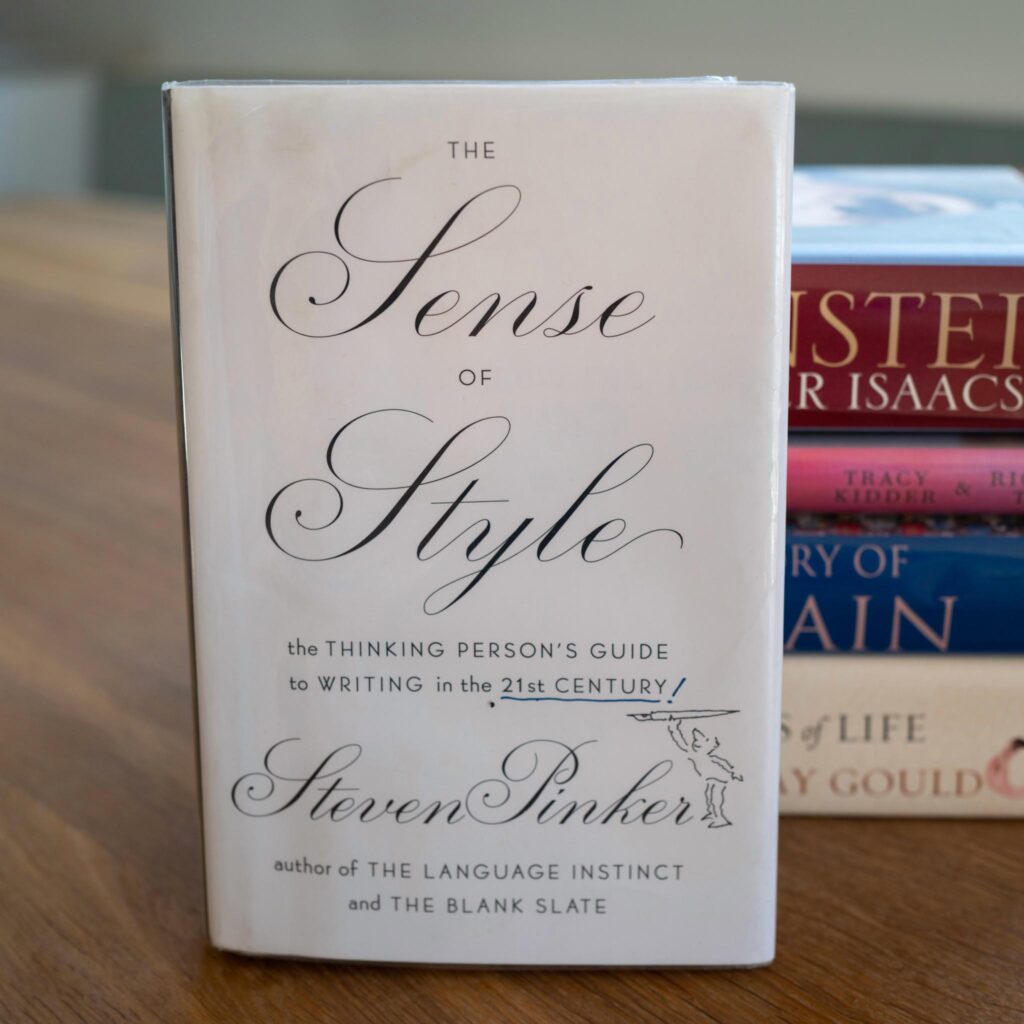
As you might expect from a Harvard Professor of Psychology and psycholinguist, Pinker’s book is a scholarly exposition of his subject. He explores the human faculty for language and the challenges of translating the spoken to the written word. His writing is erudite, witty and crystal clear, even when the subject matter is complex.
Although he provides no shortage of advice, examples, and guidelines, he preaches a contemporary and flexible approach to writing well. He is a gifted communicator, and I found the book a rewarding read for its subject matter and his writing style.
My favourite books on writing – number 3: The Elements of Style, by William Strunk Jr. and E.B. White, Penguin.
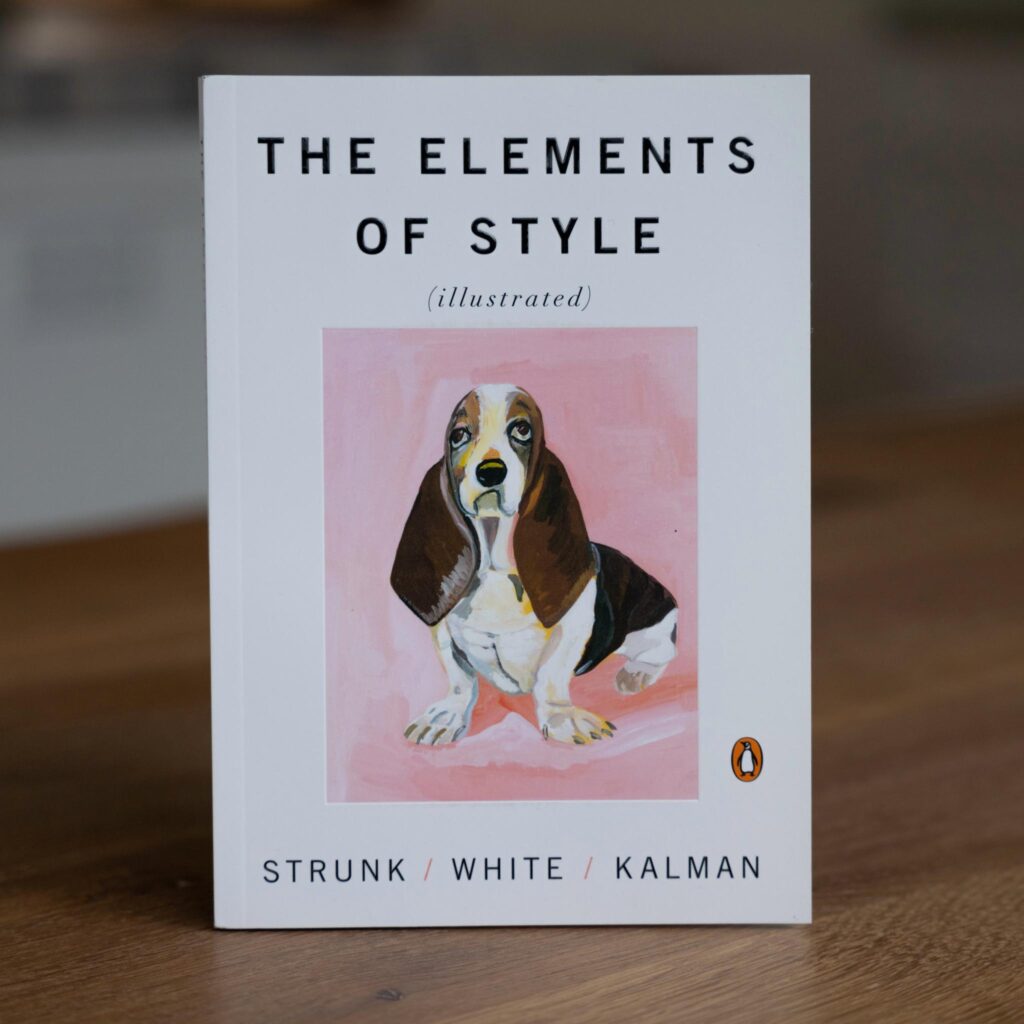
Any compilation of books on writing is likely to include this classic. It lacks the wit and charm of the books by Dreyer and Pinker, hence not making it to the top of my list. Nevertheless, it is a fine place to start the journey toward better writing. The authors adopt a more rules-based, even hectoring approach to their guide, but their repeated urging to reduce clutter and cut out unnecessary words is sound advice.
I bought, rather than borrowed, the paperback edition, delightfully illustrated by Maira Kalman, since I was sure I would return to it repeatedly for inspiration.
My favourite books on writing – number 4: Good Prose: The Art of Nonfiction, by Tracy Kidder and Richard Todd, Random House.
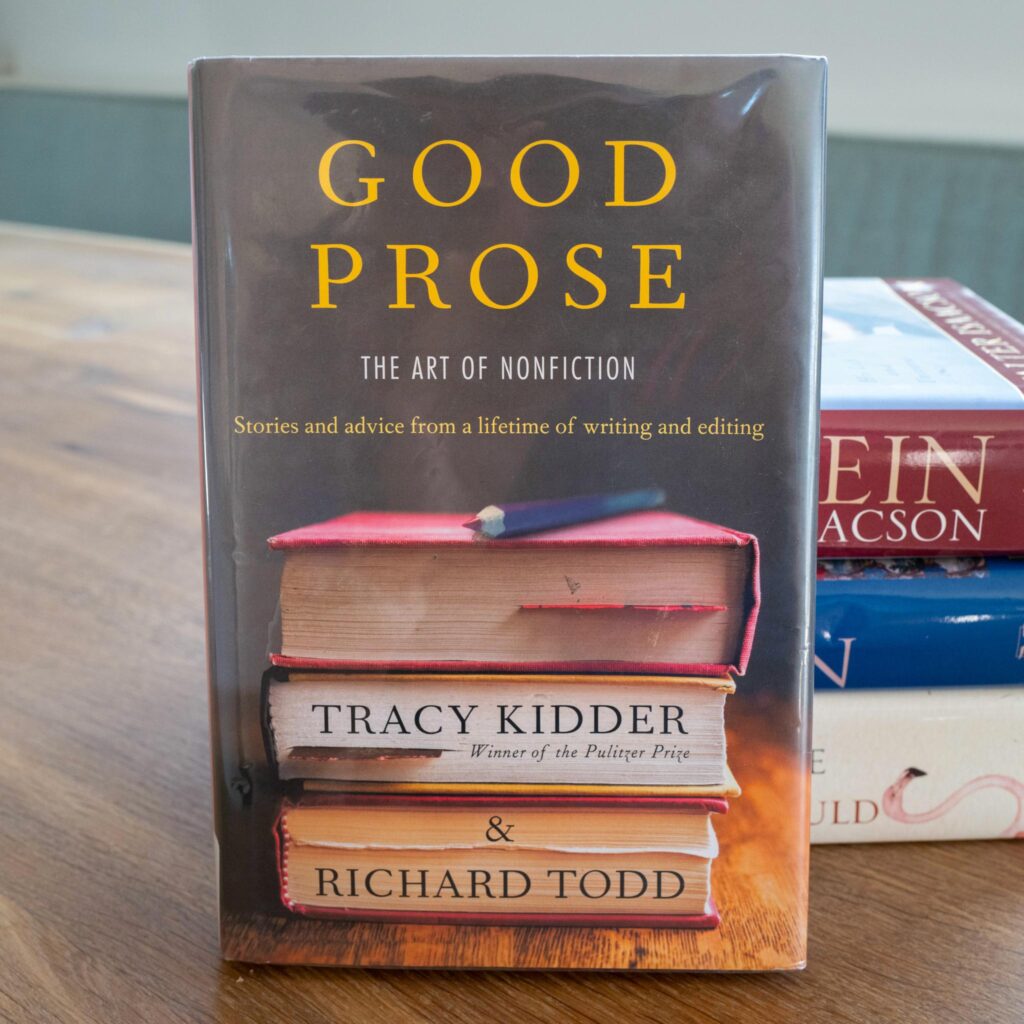
This is the first book on my list not to feature ‘Style’ in the title, referring instead to the ‘Art’ of writing. The book is unusual in two respects: it deals specifically with non-fiction writing; and it is the product of a ‘writer-editor’ pair who worked together for many years at The Atlantic, a prestigious literary magazine.
As a result, it explores the cyclical, iterative aspects of writing: drafting, revising, and editing. It also considers the creative tension between writer and editor. I found it a refreshing change from more conventional style guides and an entertaining read.
My favourite books on writing – number 5: Eats Shoots & Leaves: The Zero Tolerance Approach to Punctuation, by Lynne Truss, Avery Press.
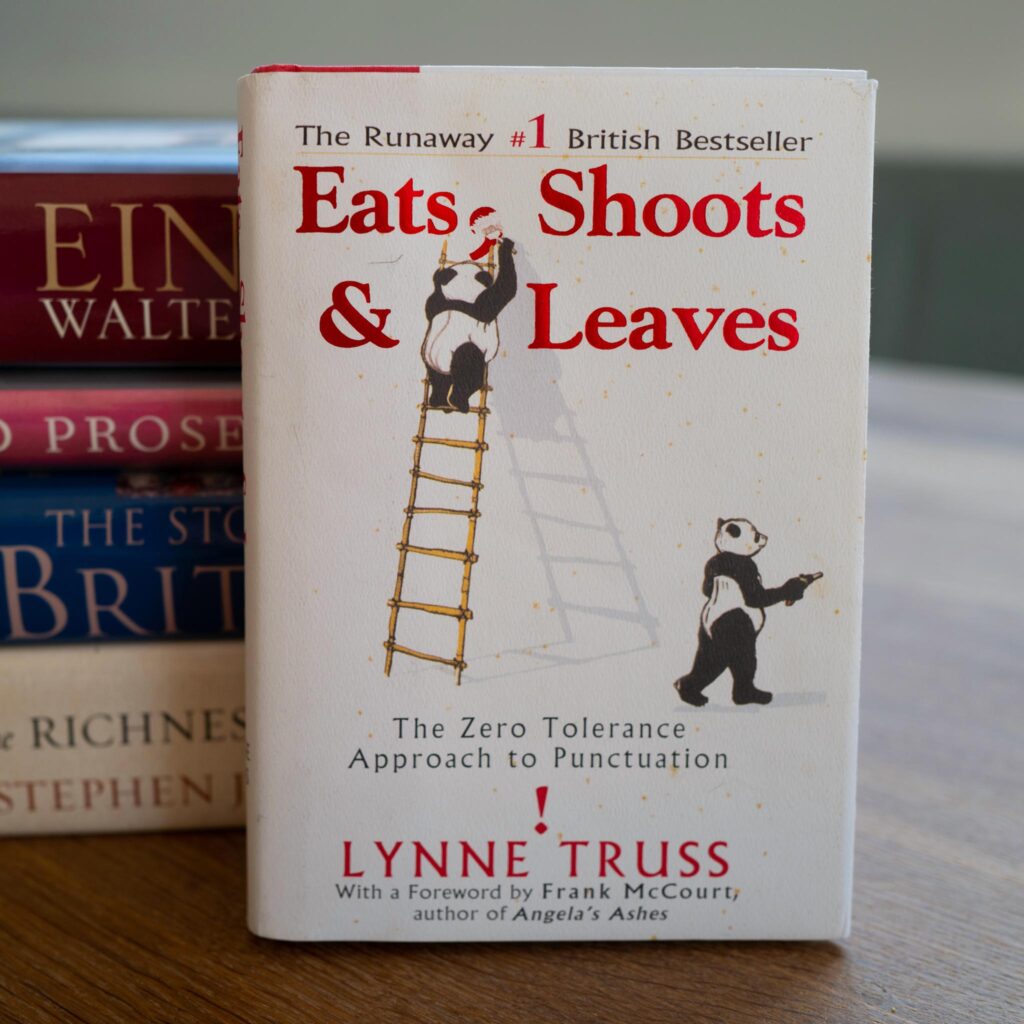
This book, another New York Times Bestseller and an irreverent guide to punctuation, will be digested most readily by a British readership. I found it in a neighbourhood ‘mini-library’ here in California and so, apparently, it appeals to American readers too. The author, a successful journalist and radio broadcaster, enthusiastically advocates for correctly punctuated writing, an outlook well aligned with today’s national focus on grammar. Her down-to-earth, tongue-in-cheek denunciation of cliche-ridden text (!) is presented with warmth and humour. It is a fun read.
Don’t forget to mark National Grammar Day with a literary activity of some kind. Even better, make it a literary activity with a photographic twist. You could send a (correctly spelt and punctuated) message to a photographer friend. Or, even better, you could draft your first Macfilos article about your latest photography exploits!
Read more from Keith James
Join the Macfilos subscriber mailing list
Our thrice-a-week email service has been polished up and improved. Why not subscribe, using the button below to add yourself to the mailing list? You will never miss a Macfilos post again. Emails are sent on Mondays, Wednesdays, and Fridays at 8 pm GMT. Macfilos is a non-commercial site and your address will be used only for communications from the editorial team. We will never sell or allow third parties to use the list. Furthermore, you can unsubscribe at any time simply by clicking a button on any email.

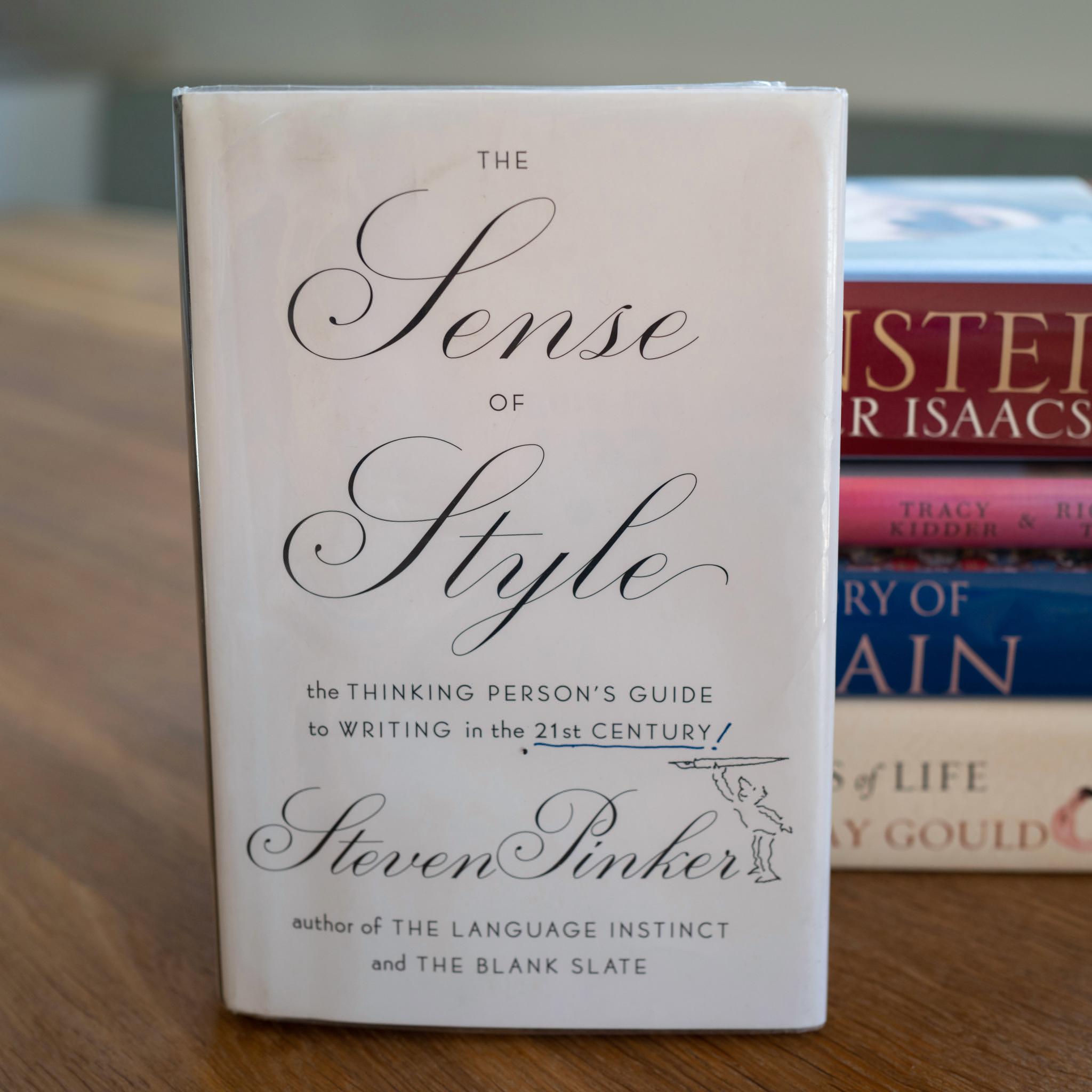
Fowler’s Modern English Usage; Brewer’s Dictionary of Phrase and Fable; Roget’s Thesaurus. I can repeatedly read the very entertaining Brewer – my ‘desert island book’ – always learn/relearn something from Brewer.
Ah! Rogers and Fowler’s, two of my go-to books before on-line thesauruses and Grammarly which I use now as an AI proofreader for those times when I am rushing out articles. It isn’t infallible and some of its suggestions are odd, but at least it makes me think and lets me decide on what I consider to be correct. Most people I approach treat Grammarly with disdain, but I find it a great comfort when I’m working alone. I can’t afford to employ a sub-editor…
Mike, I’m unfamiliar with Grammarly apart from its ‘intrusions’ into my You Tube enjoyment – ‘intrusions’ which have deterred me from investigating Grammarly further. “Naa wo’ I meeen Yeah?? – INNIT? 🙂
Those intrusions are even more annoying for Grammarly subscribers!
I heard my granddaughter say the filler ‘and yeah’ recently.
It feels that “you know” is a North American thing that is inevitably reaching the UK. I watched a very interesting talk on YouTube given by a British photographer now living in the States. Loved it and searched for more by the same chap (old fashioned word for guy). I had to switch off, almost ever other phrase included “you know’. It has become a meme and I want to avoid it slipping into, well you know, a habit. The off switch also was employed during some of Youtube’s #leicaconversations, pity.
DC
I think “you know” has been extremely common in British English for many years, even going back decades. I hear Government ministers and all flavours of professionals using it. It’s another of those pause-type phrases (I don’t remember what they are called) that people use while they are thinking of what to say next. “Well” used to fill that spot.
Inevitably, though, American and British English is converging, and it is mainly American English that is being absorbed into British thanks to movies (films?). I find young Britons now going into Starbucks and saying, “Can I get a cappuccino”. I still prefer to use “could I have” or “may I have”. But “get” seems here to stay, and we’d better get used to it. Another phrase that is becoming common (unfortunately) is “reach out”. This was never used in British English until a year or so ago. Now, however, everyone is reaching out in every possible direction, and I cringe every time I read or hear it.
Language is continually changing, and the effect of easy travel and universal media (Netflix, for instance) is serving to internationalise English to a far greater extent than was thought possible even two decades ago. I suppose we’d better get used to it, although it is probably only older people who have the background experience to notice — or care, for that matter.
Bah humbug!
Thanks, Keith, for sharing this. I do not know any of these books which is no suprpise. As for my writing in English, I am on the level of using The Economist’s Style Guide. Very helpful if you are wirting in a language that is not your mother’s tongue. The Style Guide may not be as amusing as the books you presented here, but I like it all the same for being precise and understandable. JP
“You Know” has reached epidemic status on YouTube
David
I wonder if other languages are also afflicted by their own equivalents of ‘you know’, ‘like’, ‘anyway’, etc. Or is this just a curse of the English language?
Perhaps Jörg-Peter can update us on the situation with German, gel.
Reminded me about the Australian joke “What do kiwis do ?”
(Which links to the previous article as well on readership geographical spread).
Certainly a worthy pursuit, especially in the current environment. Like it would help reduce the repetitive use of some words like many people like to do. Like it drives me crazy listening to many young people like they have a vocabulary of like 100 words like they find it impossible to describe their experience beyond the use of a single word like awesome or like OMG Even material like newspapers shock me like it is weird.
I like your article like it is awesome.
It’s like sorta neat innit?
A cherished Brit friend here, that was a wonderful writer (recently departed this world due to the excruciating grammar everywhere), showed me the last book here “Eats, shoots and leaves” to improve my blog writing – but then she paused and told me fo stick to my day job. I am still puzzled by her comment but it looked like a great book for people not obsessive with grammar. 😀
Hi Brian, thanks! The overuse of ‘like’ in contemporary speech does seem to be all pervasive. It is so unfortunate. Even middle-aged folk seem to have caught the disease. It is so ingrained I wonder if spoken English can ever be free of it. Do people learning English as a second language slip into this habit too? Steven Pinker discusses the evolution of spoken language and even embraces the inevitable change. I wonder what he has to say about the scourge of ‘like’ that we face! Are we curmudgeons for holding this view? 🙂 Cheers, Keith
Anyway, I do not think we are being overly critical. Anyway, I have had to move tables in restaurants due to the constant bombardment of “like” or the F bomd every third word. Anyway, I think it is important to build or at least maintain vocabulary.
Anyway, I read an interesting article a while back that stopped me dead in my tracks. Anyway, it pointed out that your ability to think is heavily based on your vocabulary. Anyway, I did enjoy your article.